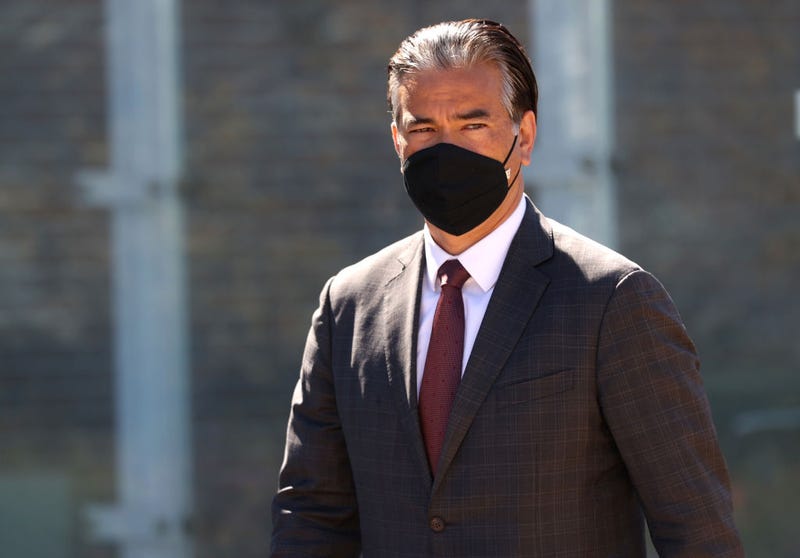
California Attorney General Rob Bonta announced on Monday that California will restrict state-funded travel to five states because of new anti-LGBTQ+ legislation enacted in each state.
Arkansas, Florida, Montana, North Dakota and West Virginia are now among the states that face restrictions on state-funded travel from California.
A press release from the state’s Department of Justice cites the banning of transgender girls from playing sports on teams that match their gender identity in Montana, Arkansas and West Virginia as among the reasons behind Bonta’s move.
The new restrictions are in accordance with Assembly Bill 1887. The bill, which came into effect January 2017, stated, "California must take action to avoid supporting or financing discrimination against lesbian, gay, bisexual, and transgender people." Any state that passes anti-LGBTQ+ legislation after 2015 is subject to the law.
“Assembly Bill 1887 is about aligning our dollars with our values,” said Bonta.
According to Bonta, recent legislation in five states are part of a larger attack on anti-LGBTQ+ identities.
“Make no mistake: We’re in the midst of an unprecedented wave of bigotry and discrimination in this country — and the State of California is not going to support it,” he said.
A place on the travel restriction list means state agencies and other arms of the state, including the University of California and California State University systems, can not require an employee to travel to any state on the list.
Additionally, California can no longer approve a request for state-funded travel to Arkansas, Florida, Montana, North Dakota or West Virginia.
The five new additions join Alabama, Idaho, Iowa, Kansas, Kentucky, Mississippi, North Carolina, Oklahoma, South Carolina, South Dakota, Tennessee and Texas on the list of restricted-travel states.
Following the 2017 implementation of Assembly Bill 1887, athletes and students at state schools were subject to a number of disruptions.
In 2017, UC Berkeley men’s basketball were in the process of organizing a number of games with the University of Kansas. The talks were cut short after the law went into effect, according to The Daily Californian.
UC Davis student Acacia Keith told the LA Times she was fine missing a conference in Memphis even if it meant forgoing a professional opportunity.
“I don’t want any funding on my behalf from the state, my parents or grandparents to go to a state like Tennessee that discriminates against LGBT people,” she said. “It was a very easy decision to make.”
But UC Davis student Mark Rivera disagreed. “Instead of discouraging travel to supposedly backward places, we should encourage travel; otherwise, campuses will become more insular and make the problem worse,” he told the paper.
Each state has its own timeline of when the restrictions will come to effect. More information is available at https://oag.ca.gov/ab1887.
